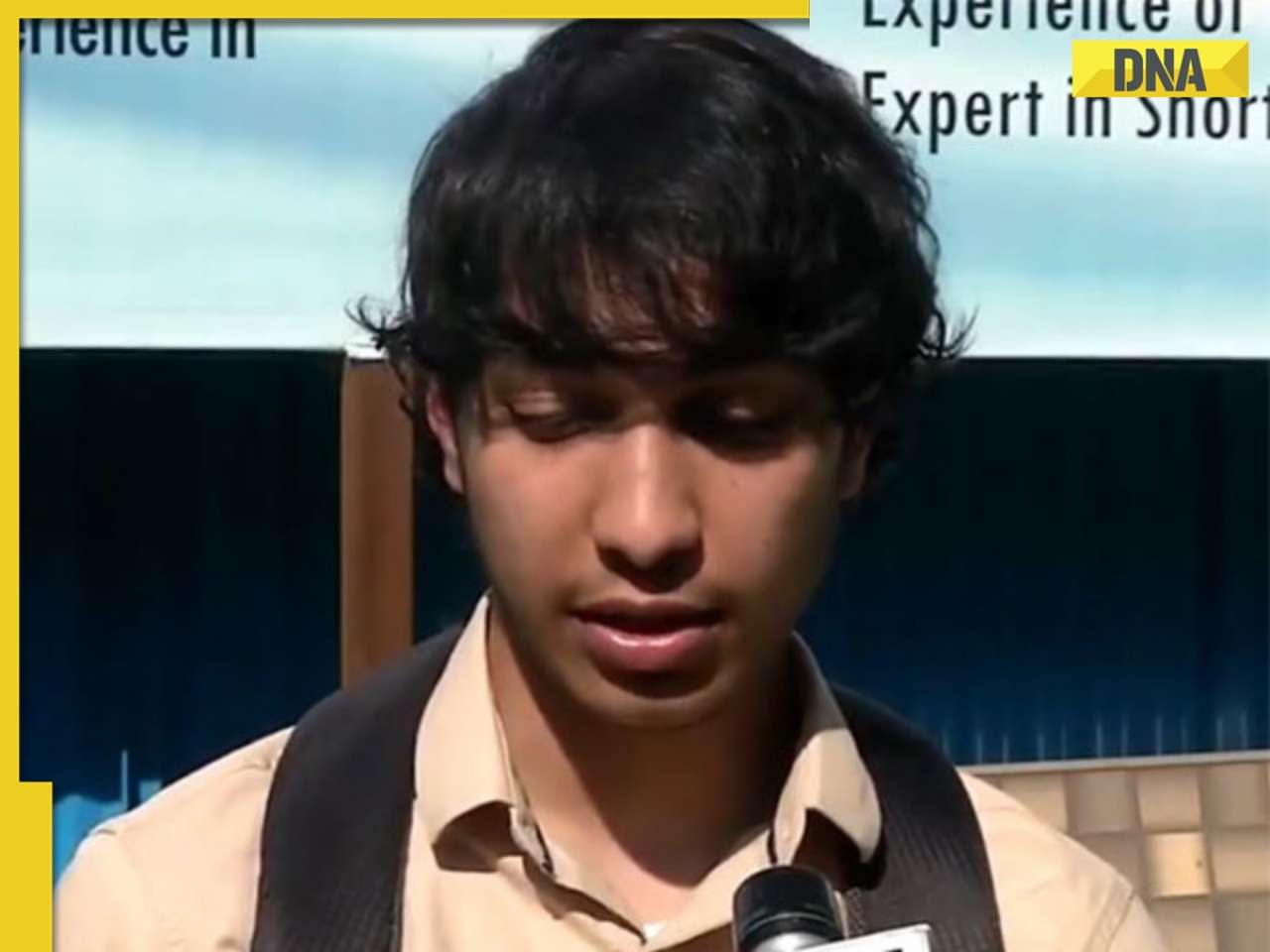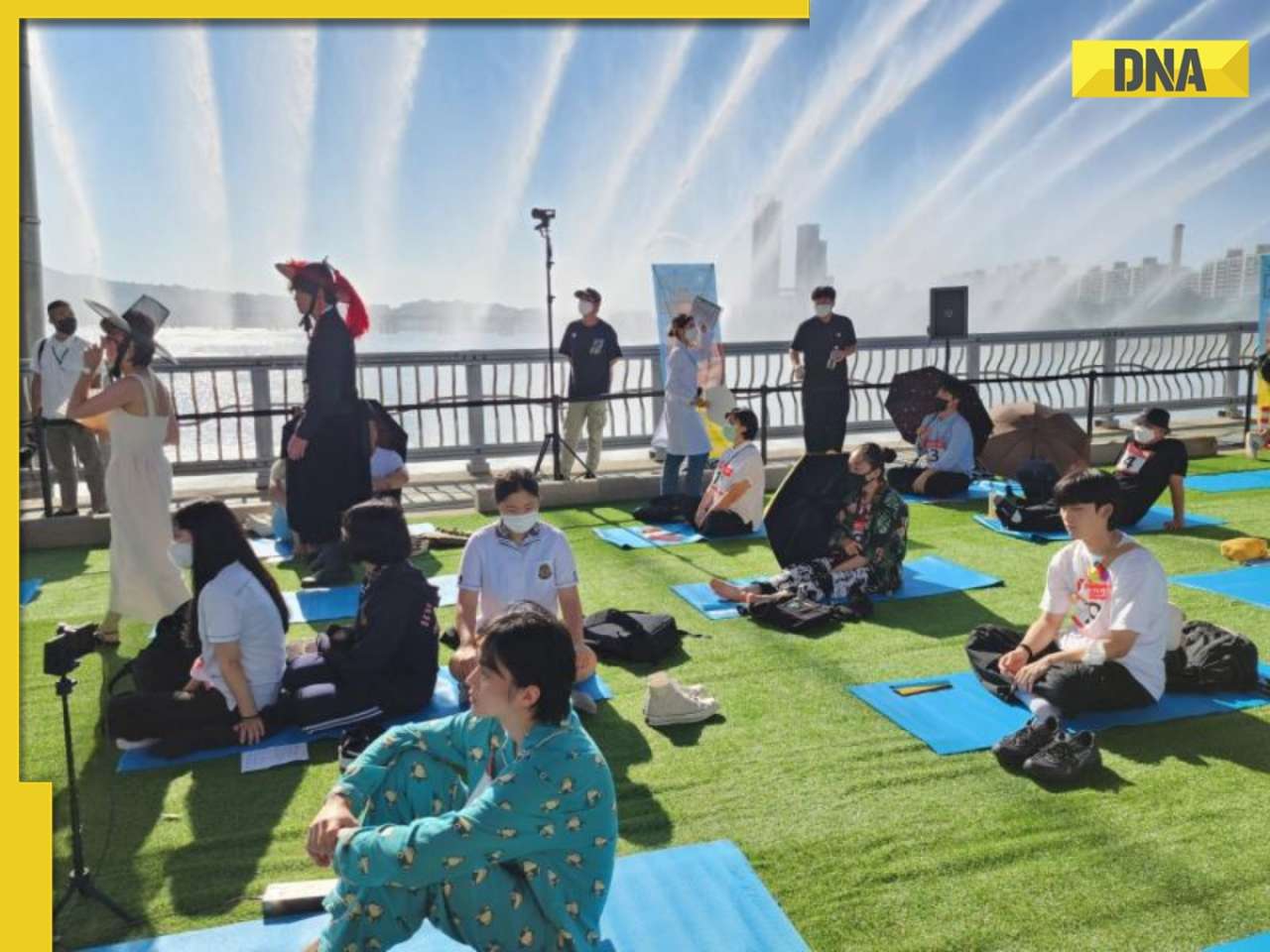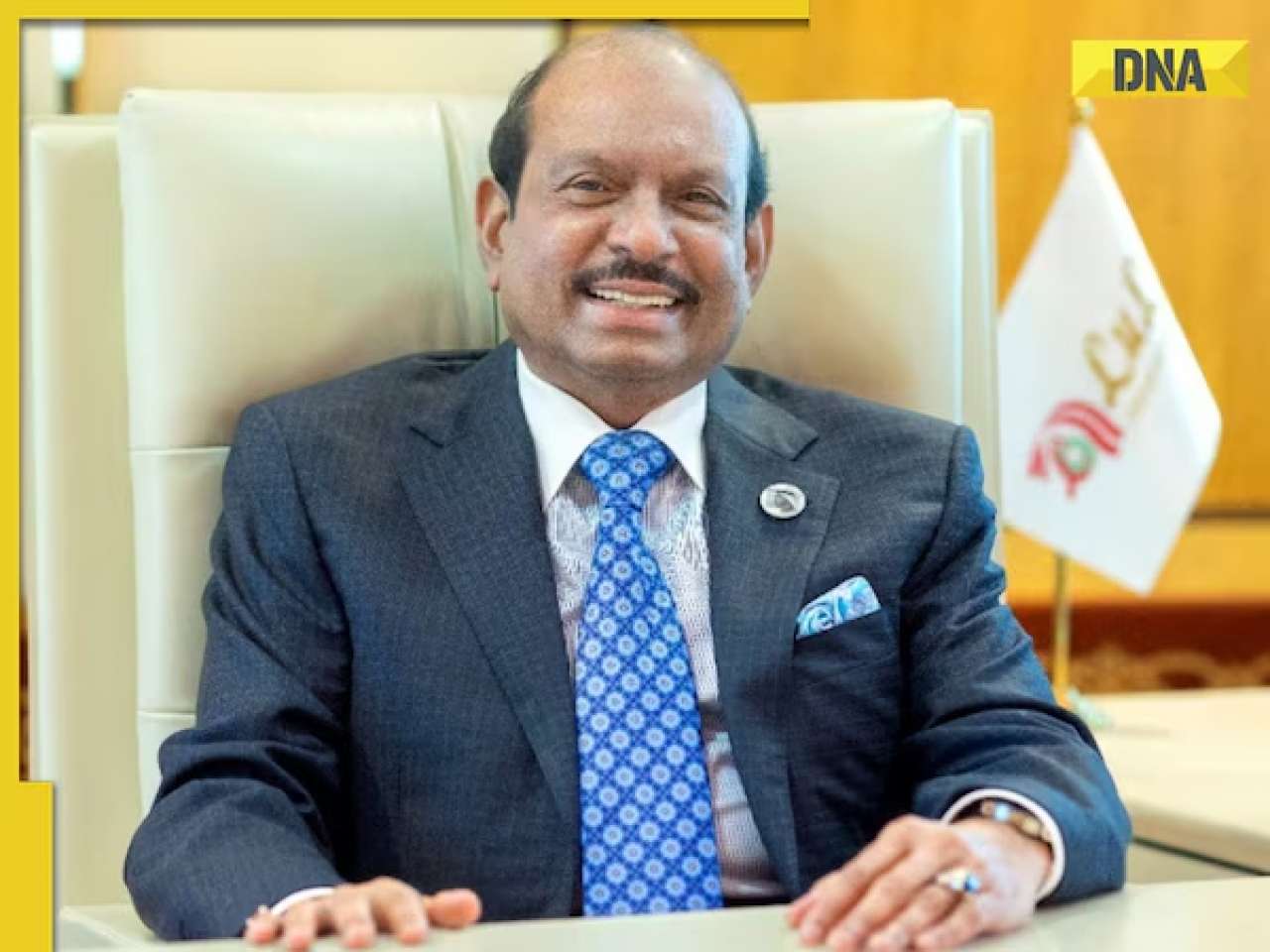Pakistani cement producers, who currently have 7 million tonnes of excess capacity, are slowly increasing exports to India.
MUMBAI: Pakistani cement producers, who currently have 7 million tonnes of excess capacity, are slowly increasing exports to India.
Lucky Cement, a Pakistani manufacturer, recently sent 125 tonnes in a trial deal through the sea route, while in the first week of March, Lahore-based DG Khan Cement Co exported 1,500 tonnes through the Mundra port.
Is this a rising trend, and therefore an inflation beater? There are many imponderables.
For one, the Lucky Cement cargo remains stuck in the Mumbai docks because the company did not know that a Bureau of Indian Standards clearance was needed for the product to hit the local streets.
A Lucky Cement representative is currently in New Delhi trying to get clearance for the consignment, which should take about two to three weeks, sources said.
Cement analyst Urmik Chhaya of Alchemy Equity Research, in a note on Wednesday said his talks with a Lucky Cement director in Pakistan were enlightening.
The company, he said, had exported 125 tonnes at an f.o.b rate of $65/tonne or Rs 2784 per tonne.
Effectively, Chhaya said, this means the price per bag imported through the (costlier) sea route will not exceed Rs 211.50 in Mumbai, that is 10-12% lower than the prevailing market prices of Rs 235 - Rs 245.
This includes 12.5% VAT (which will not be applicable if cement is being imported for self consumption), a lead distance of 200 kms, a freight rate of Rs 1.5/tonne-km, port handling and loading/unloading of Rs 380 per tonne and container freight at $5 a tonne.
DG Khan had in March exported at $70 per tonne — before the 16% countervailing duty and 4% special additional duty were waived.
The freight cost for the Lucky Cement consignment was lower — at $4.50 per tonne — because cement was despatched in sugar containers that were returning to India empty from Pakistan. Each container held 400 bags of 50 kg - or 20 tonnes.
Will such imports affect local prices?
Quantity is the key, said analysts.
Unless imported in large numbers the street price will not be impacted because the incremental demand alone in India is 9 million tonnes. That is 2 million tonnes more than the total excess capacity in Pakistan.
The far cheaper road route is key to larger imports. If that is allowed, the game changes significantly, analysts said. Many Pakistani cement manufacturers are currently awaiting a green signal from both their own and the Indian government to supply the building material through the road.
Pakistan’s export policy currently does not allow cement exports by road transport to any country other than Afghanistan.
Jaxay Shah, president of Gujarat Institute of Housing and Estate Developers in Ahmedabad, had told DNA Money last week that it would be far cheaper if the Centre allowed imports by road.
“Gujarat shares the border with Pakistan so it will be very feasible to use the roads. If our government permits, it would take just 10 days for consignments to reach the state,” Shah had said.
Importers in Gujarat are currently negotiating with Chinese cement exporters and expect the landed cost to be around Rs 160 per 50 kg bag in the state.
Pakistani cement will cost a bit more after including transportation and VAT, said Shah.
Macquarie Research analysts Rakesh Arora and Arijay Prasad, in a note a couple of days ago, said rising shipping freight, 93% capacity utilisation at ports along with distribution and warehousing issues make the sea route economically unviable when importing Chinese cement.
“Pakistan may very well hold the trump card in India’s inflation fight because of its road connectivity,” said an analyst.
Javed Ali Khan, director general of Pioneer Cement, based in Sargodha, Punjab, had told DNA Money last week that Pakistani producers can easily send 25,000-30,000 metric tonnes per month both through both the Wagah border in Amritsar and straight to Gujarat.
Pioneer sells two-thirds of its produce in the Lahore area. Khan claimed the quality of Pakistani cement was better than Chinese.
![submenu-img]() Meet man who once suffered loss of Rs 15 crore, then built Rs 2000 crore turnover company at 60, he is…
Meet man who once suffered loss of Rs 15 crore, then built Rs 2000 crore turnover company at 60, he is…![submenu-img]() 'They did her dirty': Aishwarya Rai fans criticise stylist for her 'failed art project' outfit on Cannes red carpet
'They did her dirty': Aishwarya Rai fans criticise stylist for her 'failed art project' outfit on Cannes red carpet![submenu-img]() Woman walks on the streets of Tokyo in saree, viral video shows people’s reaction
Woman walks on the streets of Tokyo in saree, viral video shows people’s reaction![submenu-img]() Blinkit offering ‘free dhaniya’ with vegetable orders, people now asking for free…
Blinkit offering ‘free dhaniya’ with vegetable orders, people now asking for free…![submenu-img]() Kartam Bhugtam: Shreyas Talpade-starrer is a riveting dive into the unknown
Kartam Bhugtam: Shreyas Talpade-starrer is a riveting dive into the unknown![submenu-img]() Meet PhD wife of IIT graduate hired at Rs 100 crore salary package, was fired within a year, he is now…
Meet PhD wife of IIT graduate hired at Rs 100 crore salary package, was fired within a year, he is now…![submenu-img]() Meet woman not from IIT, IIM or NIT, cracked UPSC exam in first attempt with AIR...
Meet woman not from IIT, IIM or NIT, cracked UPSC exam in first attempt with AIR...![submenu-img]() Maharashtra Board Results 2024: MSBSHSE class 10th, 12th results soon, know how to check results via SMS
Maharashtra Board Results 2024: MSBSHSE class 10th, 12th results soon, know how to check results via SMS![submenu-img]() Meet Indian genius who became world’s 'youngest' surgeon at 7, worked in IIT for...
Meet Indian genius who became world’s 'youngest' surgeon at 7, worked in IIT for...![submenu-img]() Meet Kashmir boy, who is JEE topper, wants to pursue Computer Science, he aims to clear...
Meet Kashmir boy, who is JEE topper, wants to pursue Computer Science, he aims to clear...![submenu-img]() DNA Verified: Is CAA an anti-Muslim law? Centre terms news report as 'misleading'
DNA Verified: Is CAA an anti-Muslim law? Centre terms news report as 'misleading'![submenu-img]() DNA Verified: Lok Sabha Elections 2024 to be held on April 19? Know truth behind viral message
DNA Verified: Lok Sabha Elections 2024 to be held on April 19? Know truth behind viral message![submenu-img]() DNA Verified: Modi govt giving students free laptops under 'One Student One Laptop' scheme? Know truth here
DNA Verified: Modi govt giving students free laptops under 'One Student One Laptop' scheme? Know truth here![submenu-img]() DNA Verified: Shah Rukh Khan denies reports of his role in release of India's naval officers from Qatar
DNA Verified: Shah Rukh Khan denies reports of his role in release of India's naval officers from Qatar![submenu-img]() DNA Verified: Is govt providing Rs 1.6 lakh benefit to girls under PM Ladli Laxmi Yojana? Know truth
DNA Verified: Is govt providing Rs 1.6 lakh benefit to girls under PM Ladli Laxmi Yojana? Know truth![submenu-img]() Aishwarya Rai Bachchan turns heads in intricate black gown at Cannes, walks the red carpet with injured arm in cast
Aishwarya Rai Bachchan turns heads in intricate black gown at Cannes, walks the red carpet with injured arm in cast![submenu-img]() Laapataa Ladies' Poonam aka Rachna Gupta looks unrecognisable in viral photos, amazes with jaw-dropping transformation
Laapataa Ladies' Poonam aka Rachna Gupta looks unrecognisable in viral photos, amazes with jaw-dropping transformation![submenu-img]() In pics: Taarak Mehta Ka Ooltah Chashmah actress Deepti Sadhwani dazzles in orange at Cannes debut, sets new record
In pics: Taarak Mehta Ka Ooltah Chashmah actress Deepti Sadhwani dazzles in orange at Cannes debut, sets new record![submenu-img]() Ananya Panday stuns in unseen bikini pictures in first post amid breakup reports, fans call it 'Aditya Roy Kapur's loss'
Ananya Panday stuns in unseen bikini pictures in first post amid breakup reports, fans call it 'Aditya Roy Kapur's loss'![submenu-img]() Remember Harsh Lunia? Just Mohabbat child star, here's how former actor looks now, his wife is Bollywood's popular...
Remember Harsh Lunia? Just Mohabbat child star, here's how former actor looks now, his wife is Bollywood's popular...![submenu-img]() Haryana Political Crisis: Will 3 independent MLAs support withdrawal impact the present Nayab Saini led-BJP government?
Haryana Political Crisis: Will 3 independent MLAs support withdrawal impact the present Nayab Saini led-BJP government?![submenu-img]() DNA Explainer: Why Harvey Weinstein's rape conviction was overturned, will beleaguered Hollywood mogul get out of jail?
DNA Explainer: Why Harvey Weinstein's rape conviction was overturned, will beleaguered Hollywood mogul get out of jail?![submenu-img]() What is inheritance tax?
What is inheritance tax?![submenu-img]() DNA Explainer: What is cloud seeding which is blamed for wreaking havoc in Dubai?
DNA Explainer: What is cloud seeding which is blamed for wreaking havoc in Dubai?![submenu-img]() DNA Explainer: What is Israel's Arrow-3 defence system used to intercept Iran's missile attack?
DNA Explainer: What is Israel's Arrow-3 defence system used to intercept Iran's missile attack?![submenu-img]() 'They did her dirty': Aishwarya Rai fans criticise stylist for her 'failed art project' outfit on Cannes red carpet
'They did her dirty': Aishwarya Rai fans criticise stylist for her 'failed art project' outfit on Cannes red carpet![submenu-img]() Kartam Bhugtam: Shreyas Talpade-starrer is a riveting dive into the unknown
Kartam Bhugtam: Shreyas Talpade-starrer is a riveting dive into the unknown![submenu-img]() Richa Chadha says Heeramandi co-star Sharmin Segal being trolled for her performance is 'audience’s right'
Richa Chadha says Heeramandi co-star Sharmin Segal being trolled for her performance is 'audience’s right'![submenu-img]() Meet only Indian actress whose film is competing for top prize at Cannes; not Aishwarya, Deepika, Kiara, Priyanka, Alia
Meet only Indian actress whose film is competing for top prize at Cannes; not Aishwarya, Deepika, Kiara, Priyanka, Alia![submenu-img]() How two heroines beat Rajinikanth, Vijay, Dhanush to give Tamil cinema's biggest hit of 2024; low-budget film earned...
How two heroines beat Rajinikanth, Vijay, Dhanush to give Tamil cinema's biggest hit of 2024; low-budget film earned...![submenu-img]() Woman walks on the streets of Tokyo in saree, viral video shows people’s reaction
Woman walks on the streets of Tokyo in saree, viral video shows people’s reaction![submenu-img]() Why Australians walk barefoot in public: Here’s the reason
Why Australians walk barefoot in public: Here’s the reason![submenu-img]() People in this country compete to see who’s best at doing nothing, here's why
People in this country compete to see who’s best at doing nothing, here's why![submenu-img]() Viral video: Influencer dressed as 'Manjulika' dances on crowded road, internet reacts
Viral video: Influencer dressed as 'Manjulika' dances on crowded road, internet reacts![submenu-img]() Viral video: Baby elephant receives 'Z-category security' during family nap in Tamil Nadu reserve
Viral video: Baby elephant receives 'Z-category security' during family nap in Tamil Nadu reserve

























































)
)
)
)
)
)